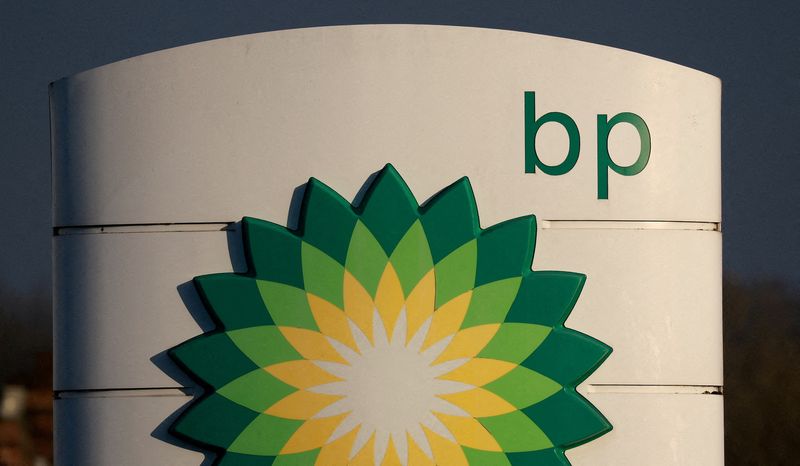By Ron Bousso
LONDON (Reuters) - Big Oil firms are handing shareholders more money than ever and are promising more going forward in an attempt to reassure investors of their discipline and resilience in the face of an uncertain outlook for fossil fuels.
The top five Western oil and gas firms - BP (NYSE:BP), Chevron (NYSE:CVX), Exxon Mobil (NYSE:XOM), Shell (LON:SHEL) and TotalEnergies (EPA:TTEF) - returned to shareholders over $111 billion in dividends and share repurchases in 2023, according to Reuters calculation.
That was slightly higher than the $110 billion they returned in 2022, when the group's profits soared to a record $196 billion after energy prices soared following Russia's invasion of Ukraine. Net profits dropped sharply in 2023 to $123 billion. All five companies have reported results over the past week.
"During a time of geopolitical turmoil and economic uncertainty, our objective remained unchanged: safely deliver higher returns and lower carbon," Chevron CEO Mike Wirth told investors last Friday.
Investors such as pension funds have traditionally held on to oil majors' shares because of their steady, long-term dividends.
But the rise of the tech sector, a sharp drop in oil majors' performance last decade due to excessive spending and oil price volatility as well as the growing environmental concerns have led to a decline in interest in the sector.
The energy sector accounted for 4.4% of the overall weighting of the S&P 500 index by the end of January, down from around 14% in the last decade, according to S&P data.
COMPLETE PREDICTABILITY
The group has revealed a clear transatlantic divide in strategies in recent years, with Chevron and Exxon focusing on growing oil production while BP, TotalEnergies and Shell invest a higher proportion of capital in low-carbon and renewables.
But the messaging to investors on returns was largely identical in recent days - stick with us and we'll pay you.
"We're very much focused on ensuring we have a compelling distribution to our shareholders," Shell Chief Financial Officer Sinead Gorman told investors last week, vowing "complete predictability" over returns.
Shell, Chevron and TotalEnergies increased their dividend in the fourth-quarter results, while BP increased the rate of its buybacks. Exxon returned $32 billion to shareholders last year, the sector's highest.
"Oil and gas is investors' least favourite sector so spending gazillions on large mega-projects for cash flows in 5 years time with uncertain demand trends is very hard to stomach for many investors," Berstein analyst Oswald Clint said.
"Inside the companies, they absolutely remember the sins of the past investment cycles and are pretty determined not to repeat those," he added.
The sector is expected to make minimal spending increases in 2024, according to Tobias Wagner, Vice President, Senior Credit Officer at Moody's (NYSE:MCO) Investors Service.
The increased discipline is a result of a few factors including investors' demands for returns as well as an uncertain energy demand outlook, he said.

"Companies are being more selective and investments face greater hurdles in terms of returns, emissions and regulations."
"The credit quality of the sector has improved with more upgrades than downgrades in recent years also reflecting discipline in maintaining balance sheet strength and flexibility," Wagner said.